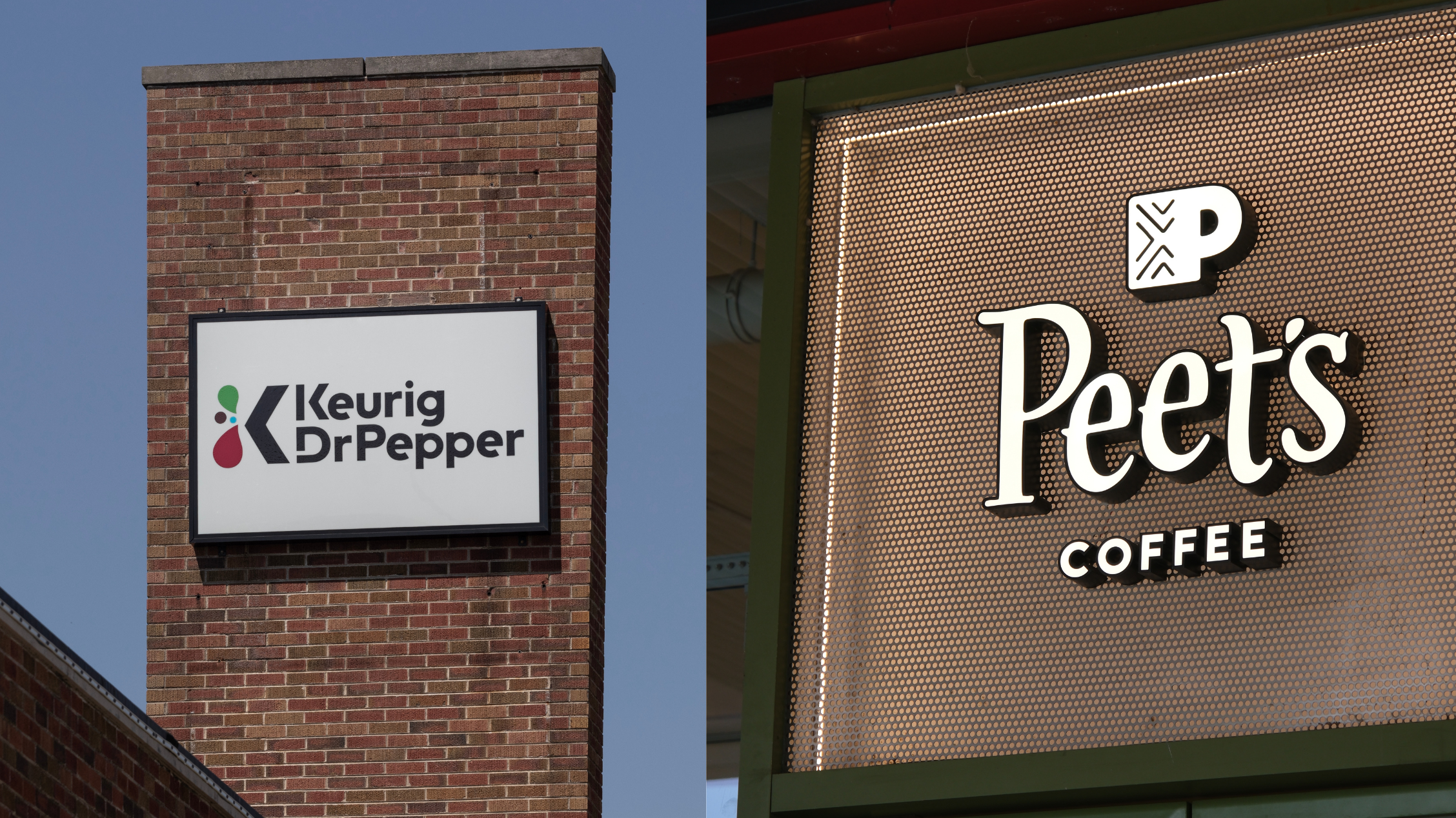One wedding, one divorce. That’s how American group Keurig Dr. Pepper pitched to Wall Street its €15.7 billion (about $18 billion) takeover of Dutch coffee giant JDE Peet’s.
When CEO Tim Cofer announced the deal in August, he barely paused before revealing his next move: a plan to split the enlarged company into two publicly listed entities on the US stock market by 2026.
The logic is simple: focus. The first entity, to be called Global Coffee, will bring together $16 billion in revenues across Keurig’s K-Cup pods, Green Mountain coffee, and JDE Peet’s brands such as L’Or, Jacobs, Douwe Egberts, Kenco, and Pilao. What has so far been a North America–centric business will suddenly extend its reach into JDE Peet’s key markets—Europe, Latin America, and the Middle East.
The second, dubbed Beverage Co., will be a playground for carbonated drinks and energy boosters. With $11 billion in annual sales, Cofer himself will oversee the group that remains home to Dr Pepper, 7UP, Snapple, and a raft of fast-growing energy drinks.
Behind this split lies the turmoil in the coffee industry. During the pandemic, homebound consumers upgraded to fancier machines and premium beans. That sugar high has faded. Inflation has squeezed household budgets, while competition from Nestlé and Starbucks has dented volumes in the US. To make matters worse, President Donald Trump’s tariffs—up to 50% on Brazilian coffee beans—loom large. By tying its future to JDE Peet’s global portfolio, Keurig hopes to hedge against those threats.
Beverage Co., meanwhile, has a clearer growth story: chasing Gen Z’s restless tastes. “Three-quarters of Gen Z consumers try a new beverage every month,” Cofer noted in July during quarterly results.
The Keurig-JDE Peet’s marriage and divorce may also foreshadow broader structural shifts in the food and beverage sector. PepsiCo, for example, faces growing pressure to consider untangling its snacks and drinks divisions. Trump’s tariffs only heighten the incentives: the company manufactures concentrate in low-tax Ireland but now pays a 15% tariff to ship it back across the Atlantic.
Keurig’s bold split may prove less of an outlier than a preview.




